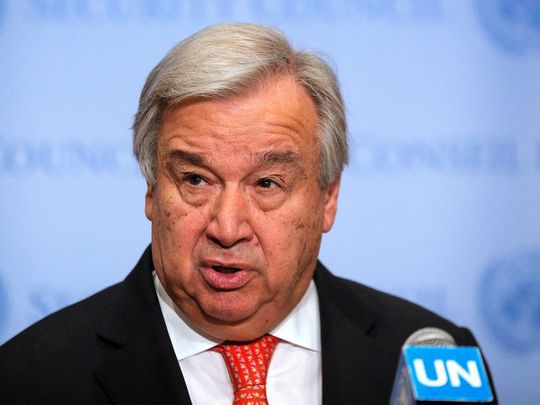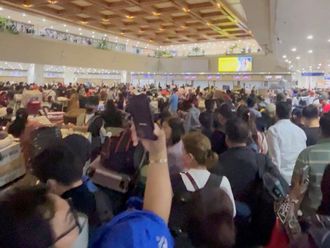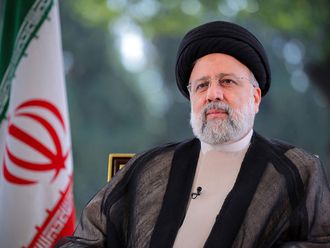
Abu Dhabi: The announcement of an agreement to establish full relations between the United Arab Emirates and Israel and cessation of Tel Aviv’s annexation of the West Bank was widely welcomed by the international community, which saw it as an opportunity to advance the peace process in the Middle East. While Egypt praised the agreement, noting its success in halting the Israeli annexation plan to Palestinian lands, the Palestinian Authority, Hamas and Iran announced their rejection of it.
As a result of this diplomatic breakthrough and at the request of US President Donald Trump and with the support of the UAE, Israel will suspend declaring sovereignty over areas on Palestine, and will work now on expanding ties with other countries in the Arab and Muslim world.
The United States, Israel and the UAE said they are confident that additional diplomatic breakthroughs with other nations are possible, and will work together to achieve this goal.
In the global reactions, UN Secretary-General Antonio Guterres, welcomed “any initiative that could promote peace and security in the Middle East region.”
Joe Biden, US presidential candidate for the Democratic Party, described the UAE-Israeli agreement as a historic step, considering the UAE’s decision to recognise Israel as a “courageous act by a statesman.”
The UAE and Israel will immediately expand and accelerate cooperation regarding the treatment of and the development of a vaccine for the coronavirus. Working together, these efforts will help save Muslim, Jewish, and Christian lives throughout the region.
The United States, Israel and the UAE share a similar outlook regarding the threats and opportunities in the region, as well as a shared commitment to promoting stability through diplomatic engagement, increased economic integration, and closer security coordination.
UAE and Israel will join with the United States to launch a strategic agenda for the Middle East to expand diplomatic, trade, and security cooperation.
In London, British Prime Minister Boris Johnson welcomed the agreement and tweeted, “The decision by the UAE and Israel to normalise relations is very good news.”
Johnson added, “I was very hopeful that annexation in the West Bank would not go ahead, and today’s agreement to suspend these plans is a welcome step on the road to a more peaceful Middle East.”
Thursday’s agreement will lead to better lives for the peoples of the UAE, Israel, and the region.
The parties will continue their efforts in this regard to achieve a just, comprehensive and enduring resolution to the Israeli-Palestinian conflict. As set forth in the Vision for Peace, all Muslims who come in peace may visit and pray at the Al Aqsa Mosque, and Jerusalem’s other holy sites should remain open for peaceful worshippers of all faiths.
In Cairo, Egyptian President Abdel Fattah Al Sisi expressed his appreciation for the trilateral statement by the UAE - US - Israel, which stipulated a halt to Israel’s annexation of Palestinian lands. Al Sisi said on Twitter, “I have followed with great interest and appreciation the tripartite joint statement between the United States of America, the sisterly United Arab Emirates and Israel regarding the agreement to stop Israel’s annexation of the Palestinian lands, and to take steps to bring peace to the Middle East, as well as the most valuable efforts to achieve prosperity and stability for our region.”
For its part, the Palestinian leadership rejected the agreement, and called for an immediate emergency session of the Arab League, as well as the Organisation of Islamic Cooperation, to reject it.
The Palestinian leadership issued a statement after an emergency meeting, chaired by President Mahmoud Abbas, in which it described the agreement as “surprising”, and considered it “a blow to the Arab peace initiative and the decisions of the Arab and Islamic summits, and international legitimacy, and aggression against the Palestinian people, and neglecting Palestinian rights and sacred sites, especially Jerusalem and the independent Palestinian state on the borders of June 4, 1967.”
The Palestinian leadership called on the UAE to withdraw from the agreement, stressing that “no one has the right to speak on behalf of the Palestinian people.”
Two Fatah officials also attacked the agreement. A member of the Central Committee, Abbas Zaki considered that the agreement an “abandonment of the national, religious and humanitarian duty towards the Palestinian cause,” while Jamal Al Muhaisin, a member of the Central Committee, said that what the UAE has done represents a departure from the Arab consensus.
He added the Arab Peace Initiative stipulates that the normalisation of relations with Israel will not be assumed, unless an independent Palestinian state will be established on the borders of June 4, 1967, with East Jerusalem as its capital, and a just solution to the Palestinian refugee issue will be reached, in accordance with international legitimacy resolutions.
Hanan Ashrawi, a member of the Palestine Liberation Organisation Executive Committee, said that Israel has received an award by obtaining normalisation of relations with the UAE.
Hamas spokesman Fawzi Barhoum said that the agreement is dangerous and represents a free reward for the occupation for its crimes and violations against the Palestinian people. He continued, “We condemn every form of normalisation with the occupation.”
The “Islamic Jihad” movement said “normalisation will not change the facts of the conflict, but rather make the occupation more terrorist.”
Iranian news agency Tasnim, linked to the Revolutionary Guards, described the UAE-Israeli agreement as “shameful.”








